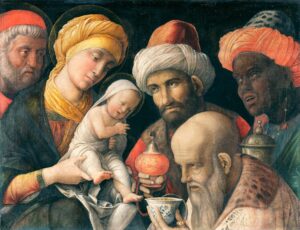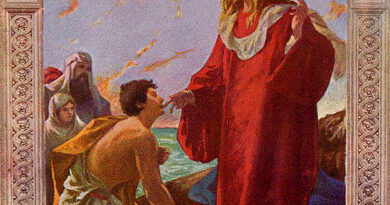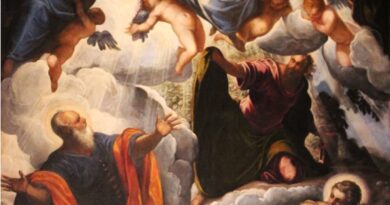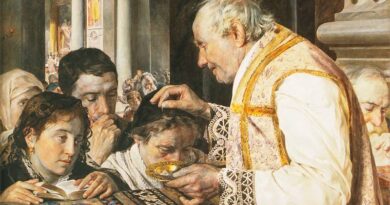Solemnity of Epiphany
Massimo Palombella

In the 3rd century, Christians began to refer to the divine manifestations of Jesus by the term ‘Epiphany’. Among these manifestations, three were particularly emphasised: the adoration by the Magi (Mt 2:1-12), the Baptism of Jesus in the Jordan (Mt 3:13-17) and the first miracle that took place in Cana of Galilee (Jn 2:1-11).
The Magi follow the star, they move, they perform actions so that their wish becomes reality.
Like the Magi, we too are called to move, to transform our desire into reality, and, in this process, to purify, to make our own desire become true and real.
Those who, perhaps unconsciously, want to maintain and consolidate their little power, as, in some way, Herod did, they are the one who do not move.
Our only strength, our real ‘power’, if we are honest, is to live in truth, to seek and do the will of God in order to be more and more capable of ‘reality’, moving on in life.
We should follow the star even when it no longer shines or, perhaps, when we are no longer able to understand where it is shining. It is a journey made up of certainties and a fast path, darkness and stops, happiness, fatigue and even, at times, disorientation.
We do not know how long the journey will be or where the star will lead us. The only thing that is certain is that, like the Magi, we will experience great joy at the end of the journey.
The antiphon to the Magnificat of the second Vespers of today’s solemnity has the following text:
“Tribus miraculis ornatum diem sanctum colimus:
hodie stella magos duxit ad praesepium;
hodie vinum ex aqua factum est ad nuptias;
hodie in Iordane a Ioanne Christus baptizari voluit,
ut salvaret nos, alleluia.”
(Three prodigies we celebrate on this holy day:
today the star led the Magi to the crib,
today water is changed into wine at the wedding,
today Christ is baptised by John in the Jordan
for our salvation, alleluia).
The attached music, in Gregorian Chant, is taken from the Antiphonale Romanum II published in Solesmes in 2009. The interpretation is by the “Nova Schola Gregoriana” conducted by Alberto Turco. The musical track can be found on the CD “Chant Grégorien: In Nativitate Domini – In Epiphania Domini” published by Arion in 2010.
A blessed Solemnity and heartfelt greetings.


